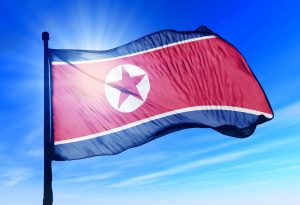North Korea held a Politburo meeting of the ruling Workers’ Party of Korea (WPK) on Wednesday and discussed “immediate work and important policy issues,” according to Korea Central News Agency (KCNA), North Korea’s state media. KCNA reported that North Korean leader Kim Jong Un attended and presided over the meeting.
North Korea discussed two main agenda items in this meeting: celebration of the birth anniversaries of Kim Il Sung and Kim Jong Il, current leader Kim Jong Un’s grandfather and father, respectively, and the current situation around the Korean Peninsula, especially about the U.S. “hostile policy” and sanctions.
North Korea accused the United States of threatening its security by conducting joint military drills with South Korea and deploying strategic nuclear weapons in and around the Korean Peninsula after the North Korea-U.S. summit meetings, while Pyongyang has been suspending intercontinental ballistic missile (ICBM) and nuclear tests as a friendly gesture to build trust and improve relations with the U.S.
As a countermeasure to the U.S. “hostile policy,” North Korea implied that it may resume testing ICBMs and nuclear weapons as part of its plan to beef up the country’s military and missile capabilities for its “self-defense.” North Korea has self-imposed a moratorium on ICBM and nuclear tests since 2018 as a part of its “confidence-building” measures for the nuclear talks with the United States. However, after the U.S. and North Korea failed to reach a deal at their 2019 summit in Hanoi, Kim later said that he no longer felt bound by this self-moratorium, resetting his policy and approach on the nuclear talks and inter-Korean relations. Despite that, North Korea has so far refrained from ICBM or nuclear tests, instead test-firing a variety of shorter-ranged missiles.
At the party meeting, North Korean leaders assessed “that the hostile policy and military threat by the U.S. have reached a danger line that cannot be overlooked any more despite our sincere efforts to maintain the general trend of easing tension on the Korean peninsula since the DPRK-U.S. summit in Singapore,” KCNA said in a statement on Wednesday. (DPRK is an anonym of North Korea’s official name: Democratic People’s Republic of Korea).
“…[T]he Political Bureau of the Central Committee of the WPK concluded that we switch over to a practical action to bolster up our physical strength for defending the dignity, sovereign rights and interests of our state in a more reliable and credible manner.”
It also criticized the recent U.S. decision to impose sanctions on six North Korean individuals who are involved in the development of the ballistic missiles and weapons of mass destruction (WMD) program. KCNA pointed out the U.S. “committed the rash act of adopting unilateral sanctions for over 20 times.”
Since the North Korea-U.S. nuclear talks fell apart after the “no-deal” Hanoi summit meeting in 2019, Pyongyang has been adamant that Washington and Seoul’s efforts are not enough to restore the dialogues. It once pinned the blame on Seoul for failing to persuade Washington to lift the crippling economic sanctions, even though the main reason for the failed Hanoi summit was then-U.S. President Donald Trump and Kim’s different views on the scope of the denuclearization process and lifting economic sanctions in return.
More clearly, the U.S. insistence on Complete Verifiable Irreversible Denuclearization (CVID) of the Korean Peninsula was not acceptable for Kim. He will never give up his nuclear weapons in a way that matches CVID.
Since then, North Korea has criticized the United States’ so-called “hostile policy” in a bid to entice the U.S. to make concessions – lifting economic sanctions and ending the joint South Korea-U.S. military drills – first before renewing the talks.
Responding to Pyongyang’s clear stance, the Biden administration has said that it has no “hostile intent” toward North Korea and has expressed its willingness to meet the North Korean counterparts “anytime, anywhere, with no preconditions.” However, the COVID-19 pandemic has made the North more isolated than ever. Pyongyang has no interest in diplomacy with the U.S. when the country is facing devastating food shortages and a sluggish economy.
In the wake of North Korea’s recent series of short-range ballistic missile tests, the U.N. Security Council (UNSC) will hold a closed-door meeting on Thursday to discuss North Korea and non-proliferation issues. The meeting may spark another response from Pyongyang. North Korea conducted its second hypersonic missile test of 2022 on January 11, two hours after Linda Thomas-Greenfield, the U.S. ambassador to U.N., condemned the North’s January 5 hypersonic missile test in a joint statement.
North Korea has constantly insisted that the purpose of its missile tests is strengthening its self-defense, not targeting specific countries. However, UNSC resolutions ban North Korea from testing and developing any ballistic missiles, regardless of range. North Korea thinks the U.S. and international community are violating its right to conduct military activities for self-defense.
If UNSC imposes new sanctions over the North’s missile tests after the meeting, North Korea will likely show off the follow-up steps it discussed in the Politburo meeting on Wednesday.

































